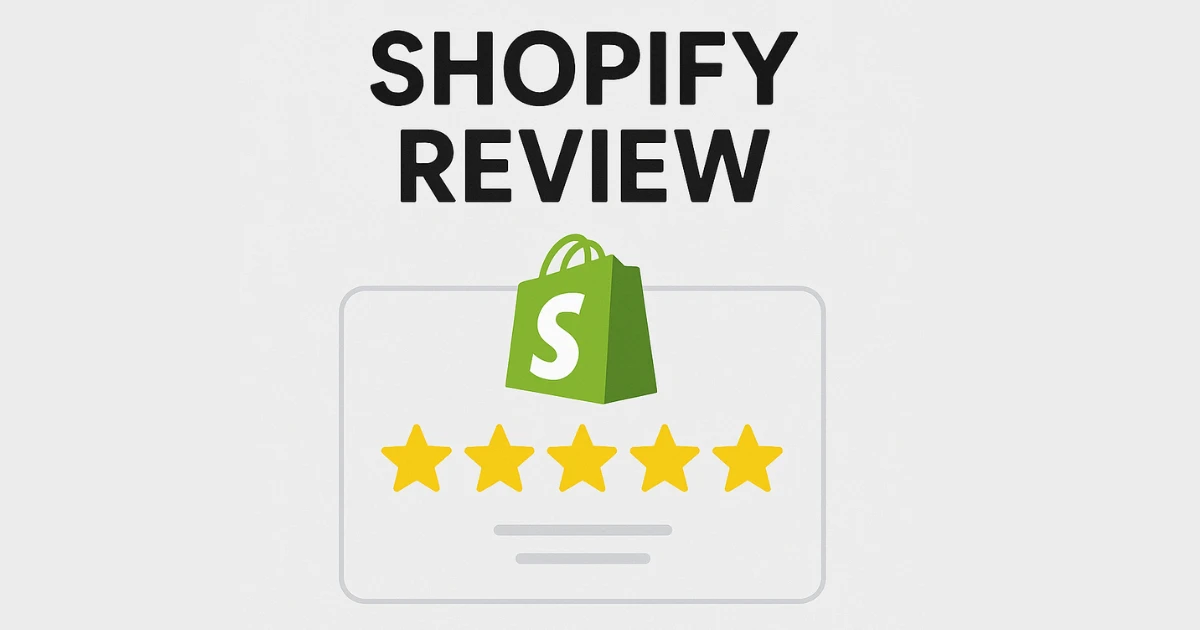Shopify has long been the gold standard for building online stores. But in 2025, with AI-driven platforms, headless commerce, and global competition heating up, is Shopify still worth your investment?
This in-depth review explores Shopify’s latest features, pricing, pros and cons, and how it stacks up against competitors.
🚀 What Is Shopify?
Shopify is a hosted e-commerce platform that allows users to build, customize, and manage online stores without needing technical expertise. It powers over 4.6 million websites globally and holds a 29% market share in the U.S. e-commerce builder space.
Key Features:
- Drag-and-drop store builder
- Built-in payment processing
- POS integration for physical stores
- 13,000+ apps in the Shopify App Store
- AI tools like Shopify Magic and Sidekick
💡 What’s New in Shopify 2025?
Shopify has evolved significantly in 2025, introducing several enhancements:
🔧 AI-Powered Tools
- Shopify Magic: Automates product descriptions and email campaigns.
- Sidekick: An AI assistant that helps with store setup, analytics, and marketing.
🌍 Shopify Markets Pro
- Streamlined international selling
- Express shipping, fraud protection
- 6.5% transaction fee applies
🧩 Enhanced Customization
- More flexible theme editor
- Improved headless commerce support via Hydrogen and Oxygen
💰 Shopify Pricing in 2025
| Plan | Monthly Cost | Key Features |
|---|---|---|
| Starter | $5 | Sell via social media, no full store |
| Basic Shopify | $29 | Full store, basic reports |
| Shopify | $79 | Professional reports, international domains |
| Advanced Shopify | $299 | Advanced reports, third-party shipping rates |
| Shopify Plus | Custom | Enterprise-grade features, dedicated support |
Limited Offer: First 3 months for $1/month on all standard plans.
✅ Pros of Shopify
- User-Friendly Interface: No coding required; intuitive design tools.
- Scalability: Suitable for startups to enterprise-level businesses.
- App Ecosystem: 13,000+ apps for marketing, SEO, inventory, and more.
- Multi-Channel Selling: Sell on Amazon, eBay, Instagram, and in-person.
- 24/7 Support: Live chat, email, and phone support available.
❌ Cons of Shopify
- Transaction Fees: Extra charges if not using Shopify Payments.
- Limited Free Themes: Most premium themes cost extra.
- App Dependency: Many features require third-party apps.
- Customization Limits: Deep customization needs Shopify Plus or developers.
🧪 Shopify vs Competitors
| Platform | Best For | Pricing Starts | Key Differentiator |
|---|---|---|---|
| Shopify | All-in-one e-commerce | $29/month | App ecosystem, multi-channel selling |
| Wix | Small stores & portfolios | $16/month | Design flexibility |
| WooCommerce | WordPress users | Free (hosting extra) | Full control, open-source |
| BigCommerce | Large catalogs | $29/month | Built-in features, less app reliance |
🛠️ SEO & Marketing Features
Shopify remains strong in SEO and marketing:
- Customizable meta titles and descriptions
- Automatic sitemap generation
- Canonical tags to prevent duplicate content
- Integration with Google Analytics and Search Console
- Built-in blogging platform
- Email marketing via Shopify Email or integrations like Klaviyo
🧵 Themes and Design
Shopify offers:
- 12 free themes
- 100+ premium themes ($150–$350)
- Mobile responsiveness
- Theme customization via Liquid (Shopify’s templating language)
🧮 Inventory & Order Management
- Real-time inventory tracking
- Smart inventory suggestions
- Bulk product uploads via CSV
- Integration with fulfillment services like ShipBob, Amazon FBA
🧑💼 Shopify for Dropshipping & POD
Shopify excels in dropshipping and print-on-demand:
- Integrations with Oberlo, Spocket, Printful, and Printify
- Automated order routing
- Product syncing and fulfillment tracking
🧭 Shopify POS & Offline Selling
Shopify’s POS system is ideal for hybrid businesses:
- Unified inventory across online and offline channels
- Mobile POS hardware
- Staff permissions and analytics
🧑🔧 Developer & API Access
For advanced users:
- Access to Shopify API
- Support for headless commerce
- Hydrogen (React-based framework)
- Oxygen (hosting for headless storefronts)
🧑💻 Customer Support & Community
- 24/7 support via chat, email, and phone
- Extensive documentation
- Active community forums
- Shopify Academy for learning
🧠 Expert Verdict: Is Shopify Worth It in 2025?
Yes—if you’re serious about e-commerce. Shopify remains the most robust, scalable, and user-friendly platform for online selling. Its AI tools, app ecosystem, and POS integration make it ideal for businesses of all sizes.
However, budget-conscious users or those needing deep customization may want to explore alternatives like WooCommerce or BigCommerce.








